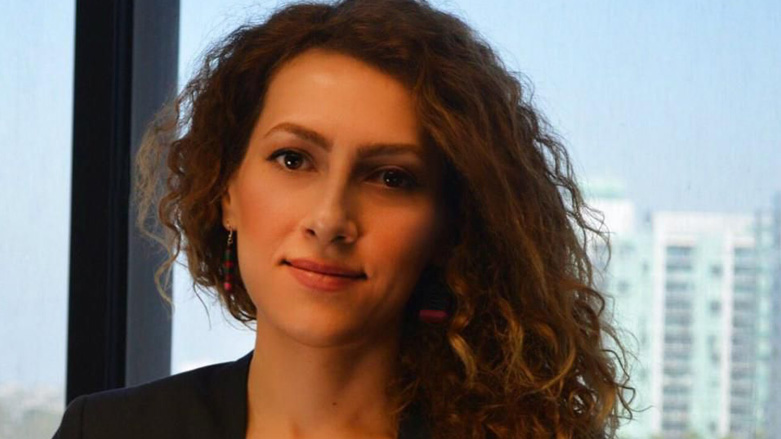Kurdish woman launches app to combat domestic violence in Iran

LOS ANGELES, United States (Kurdistan 24) - Iran lacks laws or regulations to protect women against domestic violence. A young Kurdish lawyer has created a smartphone application to combat the injustice in an innovative way.
Shadi Sharifi, born in Saghez, Kurdistan Province of Iran (known as Rojhelat among Kurds) and currently residing in the US in Los Angeles, met numerous victims of domestic violence when she practiced law in Iran.
From the educated urbanite women with careers to uneducated ones in far-flung villages, many suffered physical and psychological abuse at the hands of their husbands, and the law failed to protect them, she recalled.
A 2016 study shows that 66% of women in Iran experience domestic violence, with the western side of the country scoring the highest in the entire country.
Activists argue the actual number in a country like Iran is much larger as abuse is part of the culture, and most of the acts of violence go unreported and officially unrecognized.
With that knowledge and experience, Sharifi raised funds and recruited help after leaving Iran to create an application that would assist citizens at risk regardless of their gender or age.
Toranj, available free for Android, makes it possible for people in danger to send a quick text message to a group of trusted friends and family members and ask for immediate help.
Some of the pre-written texts make it possible for women to simultaneously ask their already selected contacts to call the police or call them. Users can also create their own texts.
"It's been proven that simple things like ringing the bell, knocking on the door or making a phone call can diffuse some tension," Sharifi told Kurdistan 24, explaining that if Iranians don't want to interfere directly and know that calling the police won't help, they can make simple excuses to stop the abuse.
That is the kind of immediate help the app provides but it also offers information on available resources, legal information, tests to assess romantic relationships and find pro-bono lawyers and counselors.
The much-needed app is a welcomed initiative in a society where abusive behaviors can be considered commonplace, and that looks down on women who bring forward complaints. The app educates people in recognizing abuse and treating it as such.
One of the Kurdish lawyer's haunting memories belongs to a pregnant woman who was severely beaten by her husband and locked in a barn for months with very little food or water and limited access to the bathroom. She lost her baby, but the court still did not take her side.
"Iran has no law that would specifically protect women from violence, but if she had been able to use forensics to show the extent of her injuries, she would have had a better chance of filing for divorce. It took her and her father months to hire an attorney during which she was kept captive while she recovered," Sharifi said.
According to the law in Iran, men have the right to divorce their spouse, but women lack that freedom except in very specific cases, for instance, if they can prove the husband is impotent or is a drug addict.
"Even those cases are very hard to prove in a court of law," Sharifi said. "We have had cases when the husband was visibly a drug abuser, but he had either bribed someone or had cheated in other ways, and the lab results showed he was clean."
Sharifi advises that women's best bet in such a society is to have their fiance or husband officially give them the right to custody, travel, education or divorce in a notary office. The Iranian government cannot legally stop the agreement between spouses but advertises against such measures.
The Iranian social structure reinforces patriarchal laws. Sharifi mentioned that she had an educated urbanite client who was as afraid of her violent husband as she was of society finding out about her situation.
"She was very worried that one of her colleagues or neighbors would discover that she was beaten. She had been a teacher for some twenty years and yet couldn't shake off the feelings of shame or guilt of experiencing violence," Sharifi explained.
"Our culture, even our proverbs such as 'Go into your husband's home in a white wedding gown and come out in a white shroud,' pushes women to fear protesting abusive practices, let alone filing for divorce," Sharifi added.
Toranj has been downloaded more than 40,000 times in Iran and has received positive feedback. With a team of fewer than ten people, Sharifi is working on adding more features and information to the application and making it available for iPhone and to neighboring countries if donors cover some of the costs.
Editing by Nadia Riva
